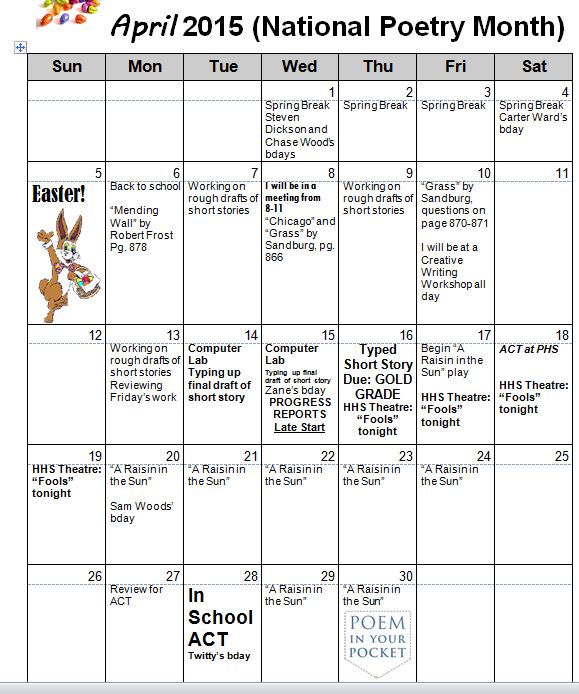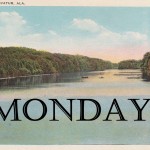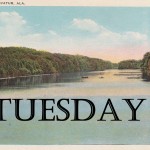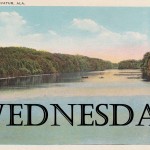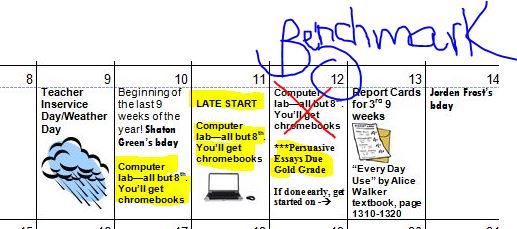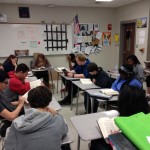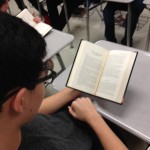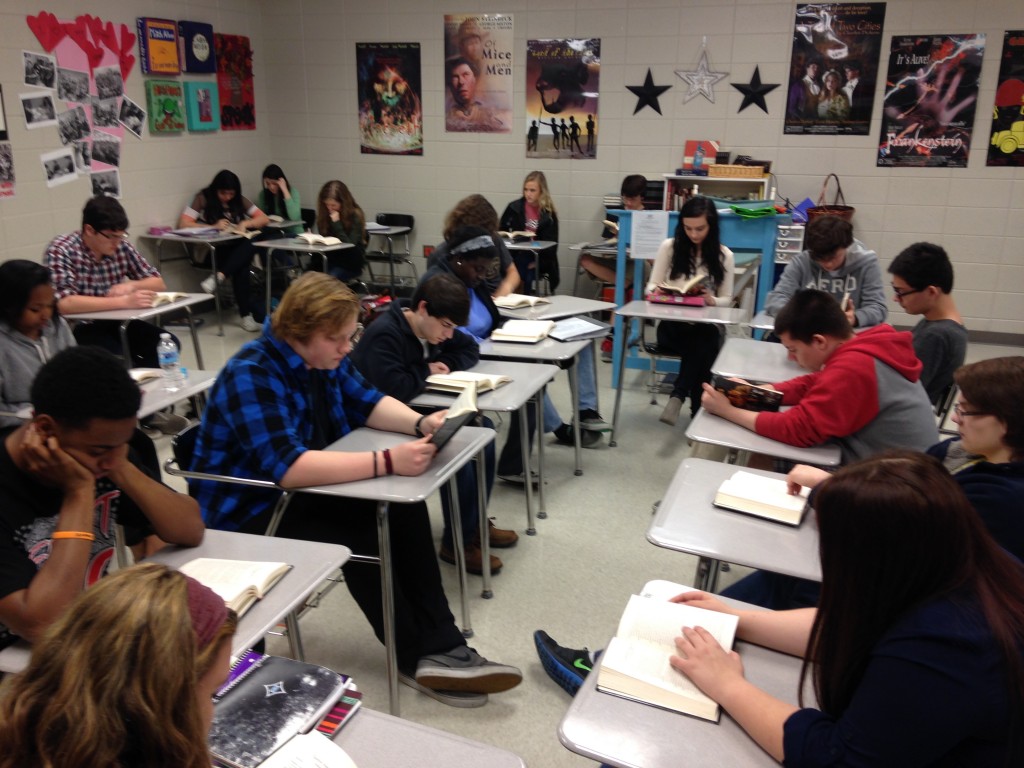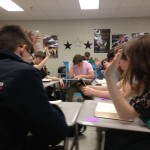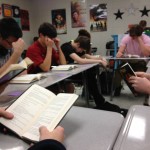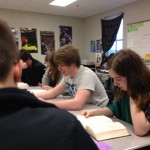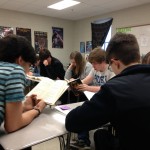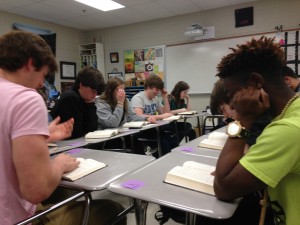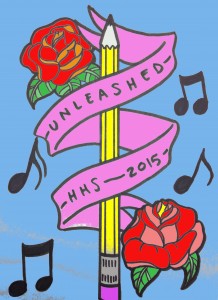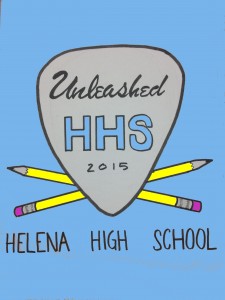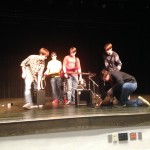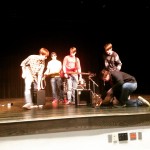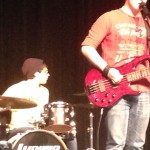is here.
January 2025 M T W T F S S 1 2 3 4 5 6 7 8 9 10 11 12 13 14 15 16 17 18 19 20 21 22 23 24 25 26 27 28 29 30 31 "A Worn Path" by Welty
A Raisin in the Sun
- "All of it" scene: Mr. Linder visits
- "Ocean Liner" scene
- "Thank You Walter" scene
- "This is Business" scene
- A Raisin in the Sun Text
- A Raisin in the Sun: Introduction
- Interview between Mike Wallace and Lorraine Hansberry
- Soundtrack for A Raisin in the Sun
- Trailer for A Raisin in the Sun (Spoilers…)
- Video: 10 minutes About Lorraine Hansberry
- Video: Introduction to A Raisin in the Sun (Some Spoilers)
- Watch After the Play
Academic Vocabulary to Know
ACT Practice
- ACT English Practice Tests
- ACT English: Adverb and Adjective Review
- ACT English: Apostrophe Video
- ACT English: Colons and Semicolon Review Video
- ACT English: Gerunds and Possessive Case of Pronouns
- ACT English: How to Identify the Issue video
- ACT English: Misplaced Modifiers Video
- ACT English: Pronoun Usage
- ACT English: Who, Whom, That, Which, Where (Relative Pronouns) Video
- ACT Exam Practice Tests–write your answers down and compare them to the answer key
- ACT Reading Passage Practice
- ACT Student—Sample Test
- Chomp Chomp–English ACT prep
- Explore English Test for ACT–pdf with answers at bottom
- Inside the ACT: Getting to Know the ACT
- MH Practice Plus Act Prep–GREAT VIDEOS TO HELP YOU!!! Use headphones if you view these in library
- Practice ACT Test
Books Online!
College Essay Tips
Creative Writing
- 10 Talks from Authors—Ted Talks
- 13 Inspirational TED Talks for Writers
- A Year's Worth of Pictures to Write About
- Free Writing Prompts
- How to Avoid VERY words
- http://www.everypoet.net/element/display.php?symbol=Mo
- Instead of using LOOK use…
- Periodic Table Poetry Ideas
- Playwriting: Creating a character
- Plot Point Generator
- Poetry Prompts
- Prose Prompts
- Random Character Generator
- Random Scenario Generator
- Raymond Carver: Short Story and Poetry Writer Chapter 1
- Said is Dead
- Story Title Generator
- Touchy Feely Words/Imagery
- Words to Describe Someone's Voice
- Writing Prompts for August
- Writing Prompts for January
- Writing Prompts for June
- Writing Prompts for March
- Writing Prompts for May
- Writing Prompts for November
- Writing Prompts for September
Death of a Salesman
Historical Documents
Links You Can Use!
- 60 Second Recap 3: Themes
- Adjective, Adverb, and Noun Clauses Video
- Concrete Nouns
- http://learning.blogs.nytimes.com/tag/text-to-text/
- Phrases and Clauses Shmoop
- Prepositions Video (Schoolhouse Rock)
- Text to Text: Real Life Connections to Novels and Plays We Read
- Tony Hawk: Do What You Love
- Video of
- What are claims and counterclaims?
Night Links
- Introduction to Night–60 Second Recap Lady
- Night: Context Analysis
- Night: Final Analysis
- Night: Motifs
- Night: Plot Summary and Analysis–Watch when finished with novel
- Night: Summary Overview–Watch before you begin
- Night: Symbols
- Night: Theme 1
- Night: Theme 2
- Night's Characters by 60 Second Recap Lady
Nonfiction
Of Mice and Men
- Audio of Gary Sinese Reading Of Mice and Men
- Audio of Of Mice and Men
- Of Mice and Men Video Summary by Sparknotes
- Of Mice and Men: Characters
- Of Mice and Men: Extra Credit
- Of Mice and Men: George (Don't watch it until you are done. Spoilers.)
- Of Mice and Men: In Conclusion
- Of Mice and Men: Message
- Of Mice and Men: Motifs
- Of Mice and Men: Setting
- Of Mice and Men: Symbols
- Of Mice and Men: The Plot–All found in chapter 1! (Watch after chapter 1)
- Of Mice and Men: Themes
Research Help
Shelby County Schools Related
Short Stories Online
Teacher Links...
Tennessee Williams
The Crucible
- From Farm Boy to Fearmonger: Senator McCarthy Video
- LeRoy High Hysteria: Dr. Drew Video
- Mass Hysteria—Girls at LeRoy High Video 1
- Overview of The Crucible
- The Crucible Characters
- The Crucible: Context
- The Crucible: Final Analysis
- The Crucible: John Proctor
- The Crucible: Motifs
- The Crucible: Plot
- The Crucible: Theme 1: Hysteria
- The Crucible: Theme 2: Guilt
The Great Gatsby Links
- 60 Second Recap 1: The Overview
- 60 Second Recap 10: Protagonist
- 60 Second Recap 2: Symbol 1–The Valley of Ashes
- 60 Second Recap 3: Themes
- 60 Second Recap 5: Plot
- 60 Second Recap 6: Overview and Analysis
- 60 Second Recap 8: Characters
- 60 Second Recap 9: Final Analysis:
- 60 Second Recapt 7: Symbol 2–TJ Eckleberg
- An Index to The Great Gatsby
- Audio of The Great Gatsby
- Chapter 1 of The Great Gatsby
- Chapter 2 of The Great Gatsby
- Chapter 3 of The Great Gatsby
- Chapter 4 of The Great Gatsby
- Chapter 5 in The Great Gatsby
- Chapter 6 of The Great Gatsby
- Chapter 7 of The Great Gatsby
- Chapter 8 of The Great Gatsby
- Chapter 9 of The Great Gatsby
- Crashcourse Pt 1: The Great Gatsby
- Fads of the 1920s
- Great Gatsby Poem
- The Great Gatsby ELL
- The Great Gatsby Music
- The Great Gatsby Online!
- Video of the Setting of The Great Gatsby
- Vocabulary for 1
- Vocabulary for 2-3
- Vocabulary for 4-5 The Great Gatsby
- Vocabulary for 6-7 The Great Gatsby
- Vocabulary for 8-9 The Great Gatsby
- What was it like to live in the 1920s?
The Lottery
Their Eyes Were Watching God
Categories
- A Raisin in the Sun (4)
- ACT (12)
- American Dream (25)
- Animal Farm (4)
- Art Connection (6)
- Beginning of the Year (8)
- Calendar (13)
- Carl Sandburg (1)
- Creative Writing (15)
- Debate (4)
- Eureka (1)
- Fahrenheit 451 (3)
- First Semester (2)
- Generation Gap Unit-11th grade (6)
- Google Classroom (1)
- Great Expectations (41)
- History Connection (4)
- Justice Theme–First Nine Weeks (2)
- Lesson Plans for 11th Grade (18)
- Lit Circles (1)
- Night (4)
- No Red Ink (2)
- Of Mice and Men (5)
- Photos (40)
- Poetry (11)
- Poetry Portfolio Project (30)
- Reading What We Want to Read (8)
- Romeo and Juliet (18)
- Science Connection (1)
- Short Story Unit (26)
- Teacher Stuff (1)
- The Crucible (7)
- The Glass Menagerie (1)
- The Great Gatsby (18)
- The Odyssey (5)
- Their Eyes Were Watching God (11)
- Third Night Weeks (2)
- To Kill a Mockingbird (26)
- Tuesdays with Morrie–11th (1)
- Twelve Angry Men (6)
- Uncategorized (313)
- Vocabulary (12)
- Writing (24)
Archives
- November 2017 (1)
- May 2017 (1)
- March 2017 (1)
- January 2017 (1)
- October 2016 (3)
- September 2016 (4)
- August 2016 (2)
- May 2016 (4)
- April 2016 (9)
- March 2016 (20)
- February 2016 (4)
- January 2016 (8)
- December 2015 (2)
- November 2015 (6)
- October 2015 (13)
- September 2015 (13)
- August 2015 (7)
- June 2015 (1)
- May 2015 (3)
- April 2015 (9)
- March 2015 (8)
- February 2015 (12)
- January 2015 (10)
- December 2014 (7)
- November 2014 (8)
- October 2014 (15)
- September 2014 (20)
- August 2014 (8)
- June 2014 (1)
- May 2014 (1)
- April 2014 (7)
- March 2014 (7)
- February 2014 (1)
- January 2014 (3)
- December 2013 (2)
- October 2013 (3)
- September 2013 (5)
- August 2013 (3)
- June 2013 (1)
- May 2013 (3)
- April 2013 (7)
- March 2013 (2)
- February 2013 (4)
- January 2013 (11)
- December 2012 (11)
- November 2012 (11)
- October 2012 (18)
- September 2012 (12)
- August 2012 (9)
- May 2012 (4)
- April 2012 (1)
- March 2012 (1)
- February 2012 (4)
- January 2012 (5)
- December 2011 (6)
- November 2011 (11)
- October 2011 (13)
- September 2011 (12)
- August 2011 (10)
- July 2011 (2)
- May 2011 (2)
- April 2011 (11)
- March 2011 (9)
- February 2011 (25)
- January 2011 (21)
- December 2010 (9)
- November 2010 (15)
- October 2010 (28)
- September 2010 (22)
- August 2010 (11)
- July 2010 (1)
- June 2010 (1)
- May 2010 (10)
- April 2010 (10)
- March 2010 (9)
Meta

